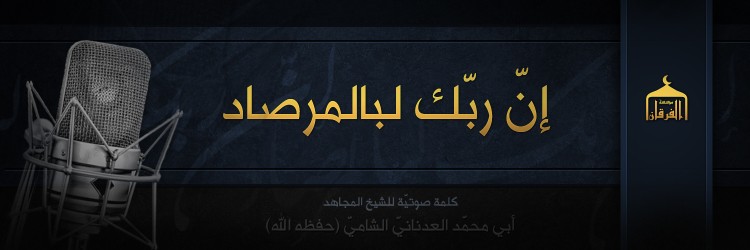The Jihadi Elephant In The Room
"It's kind of like the sounding bell went off for Canadians."
"There is a new consciousness out there right now where religious leaders are coming forward to say 'enough'."
"Enforcement is one tool, but because this problem has grown so fast we know we can't arrest ourselves out of this. It's something where we have to think of doing the business differently. We're going to be busy."
"I really believe in the strength of community. When they decide to come together with police, health, school teachers, people can really mobilize and bring change. They really can. Will we be able to ever stop this threat? What I want to focus on is stopping one threat, stopping two threats. I am going to take them incrementally and I believe we can."
Superintendent Shirley Cuillierrier, director general, partnerships and external relations, RCMP
"Do not ask for anyone's advice and do not seek anyone's verdict. Kill the disbeliever whether he is civilian or military."
ISIL spokesman Abu Muhammad Al-Adnani

The Islamic State (IS) released an audio speech from its spokesman, Abu Muhammad al-‘Adnani, rallying fighters against the U.S.-led coalition against them in Iraq and Syria, and threatening America, as well as calling upon individual Muslims to launch attacks on civilians in allied countries.
"Family members, peers, religious community leaders, even teachers, doctors, nurses and social workers are better placed to identify and respond to the changes in attitude and behaviour that are precursors to violent extremist action."
"And, with support, they are better placed to take meaningful and positive action to address those early warning signs before they become problems."
"As a society, the task facing us is to counter violent extremism at the community level. As a government, our task is to ensure that communities are equipped with an array of options in support of prevention and intervention."
Gary Robertson, Assistant Deputy Minister, National and Cyber Security Branch (Public Safety Canada)
"I do think more Muslims are waking up to the threat of radicalization in their communities."
We hope to eventually partner with the RCMP as well as education boards in order to help curb radicalization."
Tayyab Pirzada, Stop the crISIS spokeswoman

File image taken from a video on July 8, 2012, shows the spokesman for the ISIL terrorist group, Abu Mohammad al-Adnani.
Political Ottawa must grapple, along with its security agencies, with how to manage the reality of homegrown jihadists threatening the peace and stability of the country. Terrorist groups have long had their infiltrating presence in Canada. Their operations in Canada were covert and geared mostly to fund-raising from among the expatriate communities of Arabs and Muslims to benefit the groups that Canada recognizes as terrorists: Hezbollah, Hamas and Palestinian Islamic Jihad, along with the Muslim Brotherhood.
Their operations in fund-raising within the country didn't alert the government with concerned alarm that harm would come to Canada and Canadians through their silent fund-raising operations. Gradually those groups gained enough confidence through infiltration of various government agencies to present themselves as advisers. And on the side they incited for sympathy for the plight of the Palestinians, advocating for the isolation of Israel, through boycott and divestment initiatives.
That kind of destructive social disharmony did affect Canada and Canadians through indirectly harming another country and attacking at the same time Israel's connection to Canadian Jews, and the support that Israel received from the Jewish-Canadian community. It is also when Hamas and Hezbollah turned to alternate means of fund-raising for their very costly terrorist activities by investing time and effort in tobacco and arms smuggling, and then car-highjacking that authorities began to take notice.
But the real notice came courtesy of the growing Islamist movement toward jihad worldwide, when Canada began to recognize the threats of jihad arriving home with the return of those who had gone to train and fight abroad. And the newly recognized threats of homegrown radicalization where Canada itself became a target resulting from its participation in attempting to push back violent Islam in foreign countries. Earning it the reputation as another Islamophobic country ripe for revenge.
With the self-radicalized jihadist movement of lone wolves finding targets in the Canadian military within Canada, the Canadian security establishment began to pull up their trousers and plan new avenues of a more comprehensive playbook to defence and security. Recent events appear to have influenced broad-based members of the Canadian Muslim community to recognize that they have an obligation to involve themselves in Islamist threats to the country they call their own, from among their own.
A new effort to mobilize from Canada's Muslim community is beginning to evince itself with police services right across the country reporting people presenting themselves to engage police about radicalization they fear is taking place in their communities. Responding to the very issue that security and enforcement agencies at every level hoped to initiate in their effort to address the growing threat posed by violent radicals.
"These are deep problems in the Islamic community", said Sohail Raza, with the group Muslims for Tomorrow. He feels the issue of recognition of where and when radicalization takes place must be taken directly to the mosques where anti-Western thought can be prevalent. Radicalization, he emphasizes has been happening for years. He also mentions that sometimes the RCMP in their effort to find solutions has partnered with organizations with questionable ties or direct connections with extremist groups.
Senator Lynn Beyak seems to feel similar convictions: "I believe we have an elephant in the room that everyone is afraid to acknowledge. We are talking about extreme violence here in Canada, but the world is referring to it as extreme jihadist Islamic terrorism."

<< Home